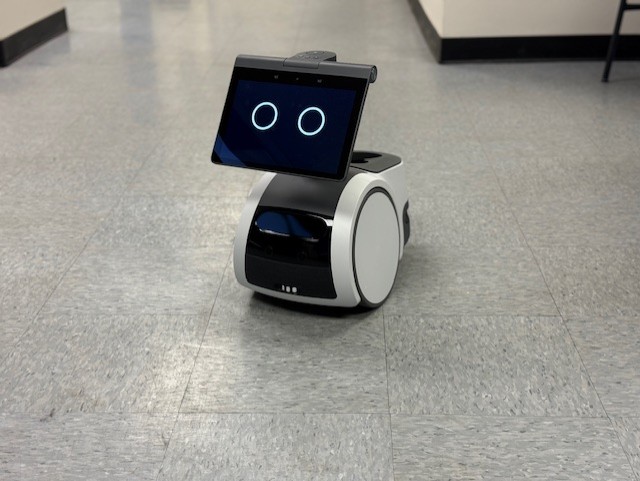Dungarvin Developing New Remote Supports for People with Disabilities in Connecticut
If you love and support someone with an intellectual and developmental disability (I/DD), there’s peace of mind in knowing that should an emergency arise when they are alone, there’s backup assistance available.
That’s what Dungarvin Connecticut will begin offering in July with the launch of its Remote Supports. This new service uses technology, such as sensors, video cameras and even robots, to monitor people with I/DD who live independently or in a residential services setting.

Depending on what an individual needs, their residence can be equipped with sensors that monitor home conditions, such as thermostats, smoke and heat detectors, and water-leak detectors. The technology is quite sophisticated. For example, if a water leak is detected, it can immediately shut off the home’s water valve.
Remote Supports are not meant to “spy” on people or infringe on their privacy. They are tools for improving safety for a person with disabilities who lives on their own, or when a Disability Support Professional cannot be present.
The opportunity to develop Remote Supports came by way of a state grant offered in January, said Dungarvin’s Connecticut State Director Robert Gallant. Dungarvin answered the call, and the state awarded the grant in April. The grant funds the project through March 2026.
“Right now, in Connecticut, there’s a movement away from typical congregant residential settings into more independent living,” Gallant said. “There’s also a big push for the incorporation of technology, and we’re on the forefront of that.”
Over the last two years, Dungarvin Connecticut has been identifying individuals who wish to live more independently in the community of their choice, said Area Director Melissa Mascari, who is leading the development of Dungarvin’s Remote Supports Response Center. “We’ve been exploring various types of technology that would assist in removing some of the barriers our individuals face,” she said.
One of the devices they’re considering uses radar technology to monitor a person’s vital signs, such as body temperature, blood pressure and respiration. The data it collects could be integrated with the Therap health-record-keeping software used by Dungarvin staff, Gallant said.
Another device, called the Amazon Astro, is a small, dog-like robot that can follow a person around, monitor their well-being and even be used for two-way video chatting, when necessary.
Dungarvin responded to people’s desire for more independence decades ago, through its launch of Sengistix, LLC, in 2008. The Minnesota-based company provides remote monitoring services, including to some of Dungarvin Connecticut’s residential services sites.
However, this particular state grant requires providers to be based in Connecticut, and Gallant and his team saw the opportunity to fully develop a new service line, reaching more people in more settings. “Sengistix is consulting with us and helping us set things up,” Gallant said, adding that the long-term goal is to expand the business to provide Remote Supports to other agencies in Connecticut.
In July, Dungarvin will participate in the state’s remote supports pilot program involving about 138 new graduates of high school and college. Dungarvin and five other organizations will provide services to these graduates. Gallant estimates his team might start with 20 individuals.
After the pilot, Gallant’s long-term goal is to use some form of Remote Supports with at least 75 percent of the individuals his team supports.
By incorporating technology into to its list of services in Connecticut, Dungarvin continues to find new and innovative ways to fulfill its mission: “respecting and responding to the choices of people in need of supports.

Add A Comment